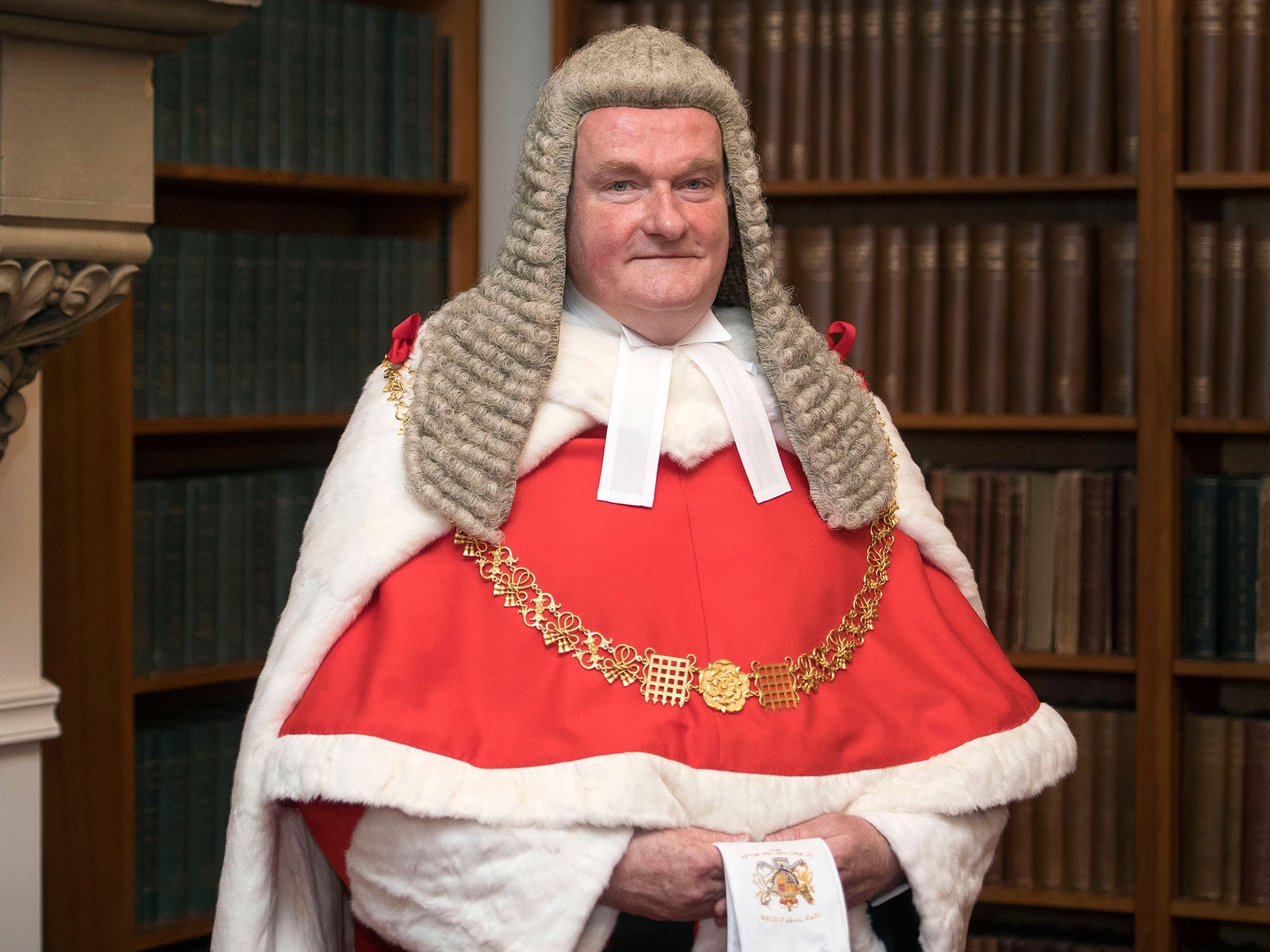Right to trial by jury could be restricted to deal with coronavirus backlog, Lord Chief Justice says
Lord Burnett backs letting judge and two magistrates decide guilt or innocence in some cases

Your support helps us to tell the story
From reproductive rights to climate change to Big Tech, The Independent is on the ground when the story is developing. Whether it's investigating the financials of Elon Musk's pro-Trump PAC or producing our latest documentary, 'The A Word', which shines a light on the American women fighting for reproductive rights, we know how important it is to parse out the facts from the messaging.
At such a critical moment in US history, we need reporters on the ground. Your donation allows us to keep sending journalists to speak to both sides of the story.
The Independent is trusted by Americans across the entire political spectrum. And unlike many other quality news outlets, we choose not to lock Americans out of our reporting and analysis with paywalls. We believe quality journalism should be available to everyone, paid for by those who can afford it.
Your support makes all the difference.The most senior judge in England and Wales has backed the restriction of the right to trial by jury to avoid an “uncontainable” backlog of cases building up during the coronavirus pandemic.
The Lord Chief Justice, Lord Burnett, said a judge and two magistrates could decide guilt or innocence instead of jurors in “either-way” cases.
The offences, which can either be heard in a magistrates’ or crown court, can currently progress to full trial at a defendant's request.
Lord Burnett said he would support new laws to enable the change “for a short time”.
“That would retain the lay public involvement in trials, but give rise to none of the difficulties of social distancing that attach to having a jury involved in a trial,” he told BBC Radio 4’s Law in Action programme. “It is worthy of serious consideration.”
Either-way offences include theft, burglary, drug possession and actual bodily harm.
The most serious crimes, such as murder, rape and robbery, can only be dealt with by crown courts.
There are currently more than 35,600 outstanding crown court cases and the coronavirus pandemic sparked new Crown Prosecution Service (CPS) guidance suggesting that fewer suspects would be charged.
The Bar Council, which represents barristers, said juries were “an essential part of the criminal justice system”
Chair Amanda Pinto QC said: “The need to address the backlog of cases built up over years must not be allowed to override the need for victims of crime and those accused of crime to see and feel that justice is being done in all cases, serious cases included.
“A panel of three is not the same as a jury of randomly-selected men and women from different backgrounds and of different ages, who bring their collective life experience to bear when evaluating the evidence.”
Lord Burnett also reiterated his support for reducing the number of jurors from the current 12 to as few as seven - a measure previously taken during the Second World War.
“It seems to me that is a serious option that should be considered,” he said.
“A smaller jury means that one could conduct more jury trials.”
A small number of criminal trials restarted in England and Wales last month, but social distancing requirements mean they must be spread across three courtrooms - dramatically reducing capacity.
One contains the parties in the case, including the judge, defendants, jurors and lawyers, the second is for the press and public and a third for jury deliberations.
“So long as social distancing is with us, particularly requiring people to keep 2m apart, restarting jury trials will not be able to deliver anything approaching the number of trials that would ordinarily be conducted each week or month across England and Wales,” Lord Burnett said.
“There are going to have to be difficult decisions made about prioritisation - which cases really need a physical courtroom and which don’t.”
A scheme where jurors watch a video feed of trial proceedings from another room is being tested but has little support because it “seemed to make the jury spectators rather than participants”, he added.

The Lord Chief Justice said the system could face “really serious problems” depending on how long social distancing continues, and whether it reduces to 1m.
“If this emergency comes to an end within a relatively few months then the backlog - uncomfortable though it might be - would be containable without making very substantial changes,” he added.
“But if we are in something approaching the same position in four, five, six months or more then the government and parliament has a difficult choice
“Do we conduct these trials in a way that ordinarily wouldn’t be thought appropriate or are we content for them simply to be put off for a very long period?”
The judge said long delays were “highly undesirable”, following warnings from victims’ advocates that complainants may drop out of prosecutions because of the additional distress caused.
The use of external spaces, such as conference centres and university lecture theatres, is also being trialled for some types of court case.
A Ministry of Justice spokesperson said: “We have been working closely with the judiciary throughout the pandemic to keep the justice system moving safely.
“Last month we restarted a small number of jury trials to help ease the pressure on outstanding cases, another 40 courts reopen this week and we will shortly announce further measures to continue on the careful path to recovery.”